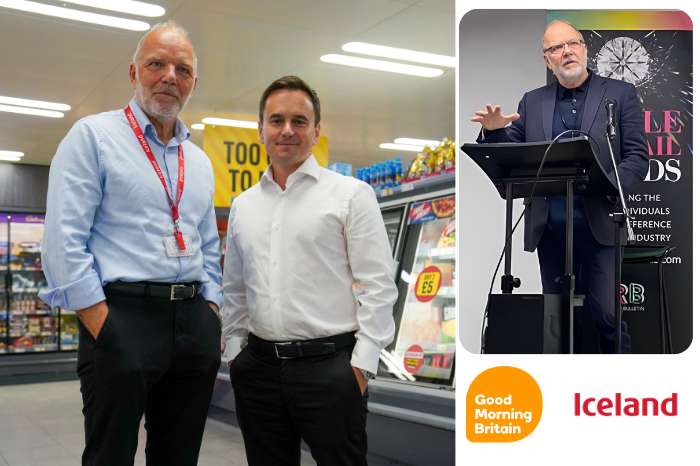Iceland’s Second Chance initiative – A model for national rehabilitation

Following Paul Cowley’s interview on ITV’s This Morning, Iceland Foods’ Second Chance Initiative is gaining attention for its impactful approach to ex-offender rehabilitation. Under the leadership…
Following Paul Cowley’s interview on ITV’s This Morning, Iceland Foods’ Second Chance Initiative is gaining attention for its impactful approach to ex-offender rehabilitation.
Under the leadership of Paul Cowley, a man with a deep understanding of the transformative power of employment, the company’s Second Chance scheme is not just a corporate initiative but a beacon of hope for those looking to rebuild their lives after prison.
Paul Cowley, who now serves as Iceland’s first Director of Rehabilitation, has been instrumental in driving this initiative. Since its inception in September 2022, Cowley has visited 98 prisons and extended job offers to 680 inmates upon their release. His efforts come at a time when six out of ten prisoners in England and Wales reoffend within a year of release, often due to the lack of employment opportunities. Cowley’s philosophy is simple yet powerful: “If you can offer someone gainful employment, it reduces reoffending by 50 per cent.”
The Second Chance scheme is built on the premise that hope is a critical factor in the rehabilitation process.
For many inmates, the future looks bleak, and the absence of opportunities post-release often leads them back to crime. However, as Cowley noted during his appearance on ITV’s Good Morning Britain earlier this morning, the impact of receiving a letter while still in prison, promising a guaranteed job upon release, can be life-changing. “It changes their whole future,” he remarked, underlining the psychological and practical benefits of such a promise.
Iceland’s initiative has caught the attention of not just the public but also government officials. The grocery retailer has petitioned James Timpson, the newly appointed Minister of State for Prisons and Rehabilitation, to consider adopting Iceland’s model as a national blueprint. The potential for such a scheme to be rolled out across the country is significant, with the Ministry of Justice itself acknowledging that meaningful employment can halve the rates of reoffending.
The success of the Second Chance scheme is evident in the stories of those it has helped. One such individual, a former inmate named Stuart, shared his journey on Good Morning Britain. Stuart, who had been imprisoned for armed robbery, spoke candidly about how the lack of job opportunities led him to reoffend. However, the letter from Iceland offering him a job before his release was a turning point. “This opportunity has changed it for me. My mindset has changed. I absolutely love the company I work with,” he said, highlighting the profound impact of employment on mental health and self-respect.
Cowley’s commitment to rehabilitation extends beyond his role at Iceland. In 2005, he founded the charity Caring for Ex-Offenders, which has helped over 2,000 men and women reintegrate into society. His dedication to this cause was recognised with an MBE in 2016. Now, through the Second Chance scheme, he is expanding this vision on a larger scale, with Iceland employing 330 ex-prisoners across its 900 stores. The retention rate and reduced sick days among these employees are a testament to the effectiveness of the programme.
The success of Iceland’s initiative is not isolated. Other companies in the food and drink sector, such as Cook and Greggs, have also implemented similar schemes with impressive results. Cook’s Raw Talent scheme and Greggs’ Fresh Start programme have both shown that hiring ex-offenders is not only a moral imperative but also a sound business strategy.
As Iceland continues to champion the cause of rehabilitation, it is clear that these individuals deserve the second chance they are being given. Cowley’s words resonate deeply: “More needs to be done to ensure they are given the opportunity to succeed.” With the government now being urged to back such initiatives, the hope is that the Second Chance scheme will become a national model, paving the way for a more inclusive and just society.
No comments:
Post a Comment